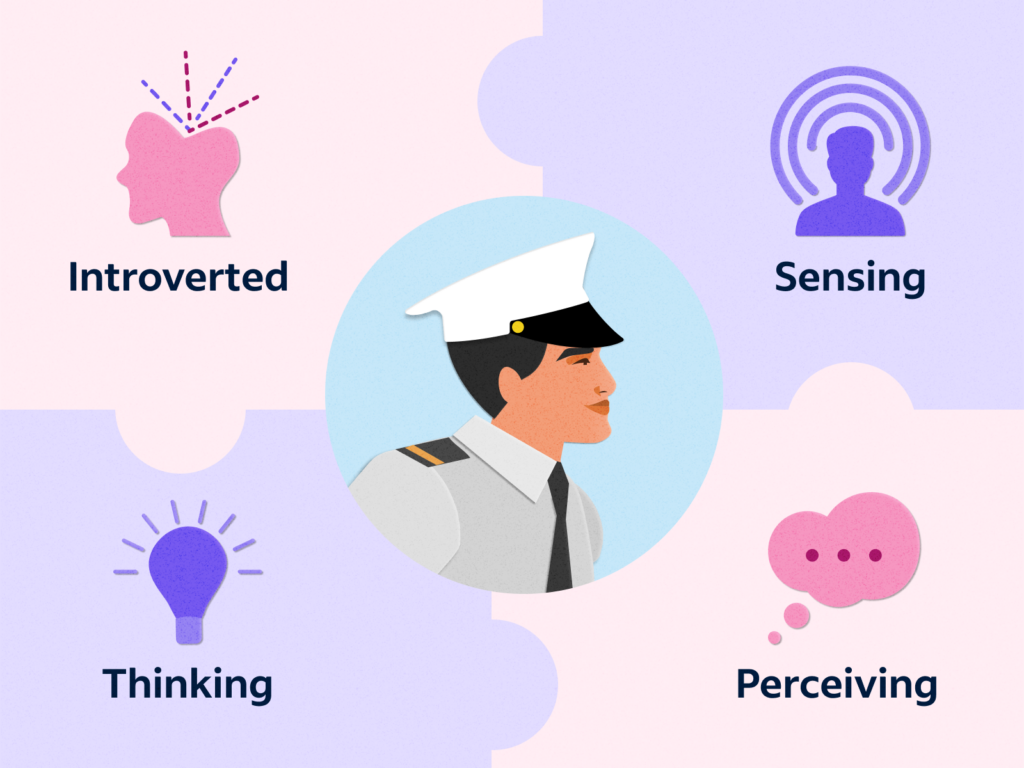Top 10 Rarest Myers Briggs Personality Types: Although there are some individuals who believe that the Myers-Briggs Type Indicator, also known as the MBTI, is nothing more than a load of pointless mumbo-jumbo comparable to astrology, there are other individuals who believe that it is an effective tool for understanding people.
In point of fact, many firms make use of the MBTI in order to assist their employees in realizing their full potential and gaining a better understanding of how they actually function.
This article includes the 10 Myers-Briggs personality types that are the least common, even though there are a total of 16 types.
The demographic statistics included in this list are derived from research conducted by the Myers-Briggs Company.
These numbers solely apply to the United States of America due to the fact that MBTI was developed in this country.
Top 10 Rarest Myers Briggs Personality Types 2024
1. ENFP
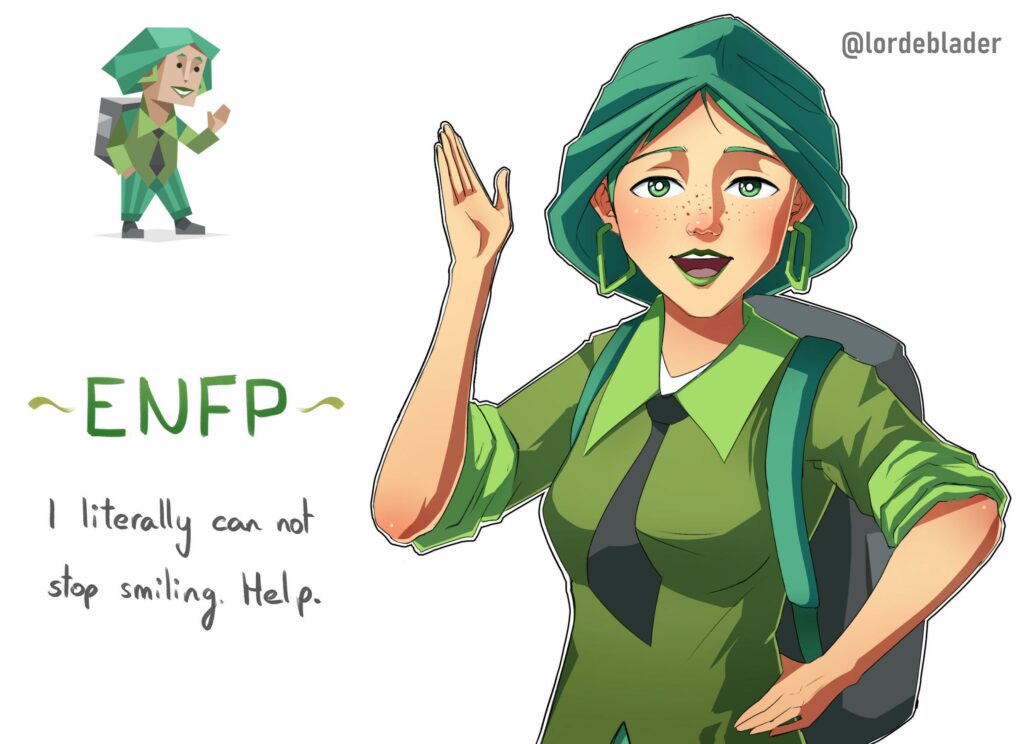
- Percentage of Population (Based on U.S. Statistics): 8.1% (6 to 8%)
- Strengths: Enthusiastic; Creative; Warm; Future-oriented; Individualistic; Caring; Optimistic; Insightful; Playful; Spontaneous
- Weaknesses: Poor practical skills; Overthinking; Easily stressed; Highly emotional; Has difficulty focusing
- Notable People Who Have These Traits: Quentin Tarantino; Will Smith; Robin Williams; Kelly Clarkson; and Russell Brand
People with the ENFP personality type are truly free spirits. ENFPs despise being confined by rigid guidelines and are firm believers that they should be in charge of their own destinies.
Even though ENFPs are known for being the life of the party, their primary interest is not in the thrill of the moment; rather, they take genuine pleasure in developing strong social and emotional bonds with other people.
ENFPs actually don’t have any trouble making friends, and they adore the idea of using their wit, sense of humor, and command of the language to create stories that people want to listen to.
Being a highly intuitive type, an ENFP, if they aren’t careful, can easily fall into the trap of assuming and anticipating the motives and behaviors of other people.
This can be problematic for the ENFP. Because of this, ENFPs are prone to overthink things, and they have a difficult time accepting things for what they are. In addition to this, ENFPs are hypersensitive to the effects of stress and have a propensity to feel overwhelmed by it.
Had You Any Idea?
People with ENFP personality types are some of the best communicators, and they frequently choose careers in counseling, education, the religious field, or the arts.
2. ISTP
- Percentage of Population (Based on U.S. Statistics): 5.4% (4 to 6%)
- Strengths: Logical; Quietly analytical; Practical; Curious; Problem-solver; Exact; Hands-on; Adventurous; Observer
- Weaknesses: Stubborn; Insensitive; Private and Reserved; Easily bored; Engages in risky behavior
- Notable People Who Have These Traits: Michael Jordan; Clint Eastwood; Tom Cruise; Milla Jovovich; and Bear Grylls
People who have the ISTP personality type enjoy working with their hands and make up the majority of the world’s artisans and crafters.
They employ reason to look for workable answers in order to confront issues head-on. ISTPs get a kick out of disassembling things to figure out how they function and then reassembling them with new and improved features.
Even though ISTPs aren’t as emotional or sensitive as some other types, they make it clear that they care about the people around them by always being willing to provide a helpful hand.
The ISTP is a form of introvert that is completely independent, in contrast to other types of introverts who may be more gregarious.
They have the ability to become completely absorbed in what they are doing and would much rather be left alone than have to deal with idle small talk. Because of this, getting to know an ISTP might be challenging.
Had You Any Idea?
It can be difficult for ISTPs to make long-term commitments, particularly in the context of romantic relationships, because they are fiercely independent and have a propensity to become bored quickly.
3. INFP
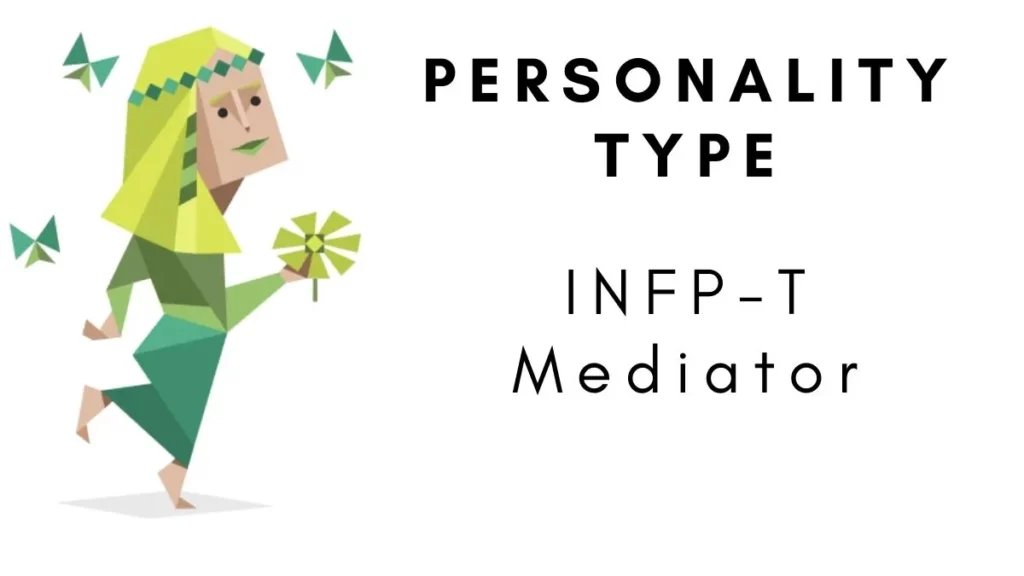
- Percentage of Population (Based on U.S. Statistics): 4.4% (4 to 5%)
- Strengths: Quietly caring; Compassionate; Creative; Idealistic; Empathic helpers; Inquisitive; Independent; Adaptable
- Weaknesses: Too idealistic; Too altruistic; Impractical; Take things personally; Difficult to get to know
- Notable People Who Have These Traits: William Shakespeare; Julia Roberts; William Wordsworth; J.R.R. Tolkien; and Alicia Keys
Because of the similarities between the two personality types, INFPs and INFJs are sometimes confused with one another.
However, INFPs are the genuine idealists of the world. They are frequently referred to be healers or mediators, and INFPs let their fundamental values and beliefs to direct their actions.
INFPs see the promise for a brighter future and are very sympathetic, sensitive, and caring individuals because of their role as healers and mediators.
When unchecked, an INFP’s tendency to put others before themselves can be harmful since they might become overly preoccupied with doing good to others while ignoring their own fundamental requirements.
In addition, because of their strong idealism, INFPs frequently experience feelings of disappointment over and over again.
Had You Any Idea?
Because INFPs have such high expectations for both themselves and others, they are the type most likely to report being dissatisfied in their marriages, ranking second highest among all personality types.
4. ESTP
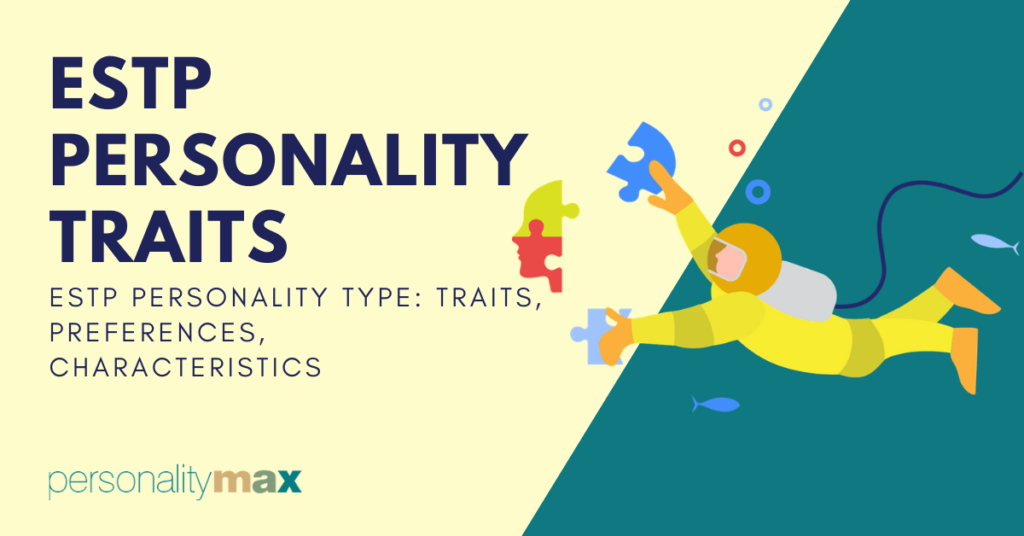
- Percentage of Population (Based on U.S. Statistics): 4.3% (4 to 5%)
- Strengths: Excitement seeking; Pragmatic; Easygoing; Observant; Realistic; Efficient; Spontaneous; Troubleshooter; Experiential
- Weaknesses: Insensitive; Impatient; Risk-prone; Unstructured; Defiant; May miss the bigger picture
- Notable People Who Have These Traits: Ernest Hemingway; Madonna; Samuel L. Jackson; Nicolas Sarkozy; and Eddie Murphy
ESTPs are typically thrill-seeking explorers who get their kicks from living a fast-paced lifestyle. Being the focus of others’ attention is one of the few things an ESTP enjoys more than anything else.
The ESTP takes pleasure in putting on a show, conversing with anyone and everyone, and making other people laugh.
Not only do those with the ESTP personality type use their energy to have a good time, but they are also quick to assess situations and are capable of easily addressing issues in order to move things ahead. Because of this, ESTPs tend to be successful business owners.
Because they have so much energy to spare, ESTPs have a tendency to be impatient and do not understand when it is appropriate to slow down.
Additionally, because ESTPs want to keep things lighter, they find it challenging to deal with severe emotions and are prone to experience discomfort when confronted with emotionally charged scenarios.
Had You Any Idea?
People with the ESTP personality type frequently pursue occupations in business, law enforcement, skilled trades, and marketing.
5. INTP

- Percentage of Population (Based on U.S. Statistics): 3.3% (3 to 5%)
- Strengths: Logical; Conceptual; Detached; Intellectually curious; Questioning; Adaptable; Independent; Objective
- Weaknesses: Critical; Absentminded; Condescending; Withdrawn; Insensitive; Hates rules and guidelines
- Notable People Who Have These Traits: Albert Einstein; Bill Gates; Isaac Newton; Rene Descartes; and Stanley Crouch
People with the INTP personality type are very rational and have a natural inclination to pursue careers in the sciences or other technical fields.
INTPs have been responsible for many of the most important scientific breakthroughs in the course of human history. They are typically characterized as the philosopher, the architect, or the dreaming professor.
People with the INTP personality type tend to spend a lot of time reflecting on their own thoughts and pondering the big questions of life.
When it comes to other people, INTPs may be book-smart, but they often have no idea what they’re doing.
INTPs have a tendency to be emotionally distant, and because of their extensive knowledge, they may come across as arrogant and callous.
Even though INTPs enjoy exchanging thoughts with others, they can become irritable when they are forced to explain things and others are unable to follow what they are saying.
Had You Any Idea?
Reading, participating in art and cultural events, playing chess and other strategy games, writing, taking classes, working with computers, backpacking, trekking, and meditation are some of the most popular forms of recreation that INTPs engage in during their free time.
6. ENTP

- Percentage of Population (Based on U.S. Statistics): 3.2% (2 to 5%)
- Strengths: Energetic; Inventive; Theoretical; Analytical; Change oriented; Adaptable; Independent; Novelty seeking; Ingenious; Verbal
- Weaknesses: Insensitive; Very Argumentative; Intolerant; Can be unfocused; Dislike practical matters
- Notable People Who Have These Traits: Mark Twain; Thomas Edison; Tom Hanks; Celine Dion; and Weird Al Yankovic
ENTPs are visionaries and innovators who relish the opportunity to question the established order. Conversation is one of the activities that ENTPs enjoy the most since it allows them to exchange thoughts and participate in discussions both large and small.
People who have the ENTP personality type have a quick wit and are informed on a wide range of issues, which provides them with ammunition for their arguments.
On the other side of the ENTP personality trait of enjoying the exchange of ideas, they have a tendency to be very combative and to undermine the convictions and concepts of others.
In addition, ENTPs have a tendency to dismiss others quickly if they perceive that the other is unable to keep up with them or support their ideas.
Had You Any Idea?
People that have ENTP personality traits are frequently referred to as Type A, which indicates that they tend to be more competitive, ambitious, and even aggressive.
7. ENFJ

- Percentage of Population (Based on U.S. Statistics): 2.5% (2 to 5%)
- Strengths: Actively sociable; Enthusiastic; Harmonizer; Idealistic; Empathic; Cooperative; Imaginative; Appreciative; Tactful
- Weaknesses: Overly idealistic; Too sensitive; Too selfless; Self-critical; Struggle with making tough decisions
- Notable People Who Have These Traits: Barack Obama; Oprah Winfrey; Maya Angelou; Malala Yousafzai; and Sean Connery
ENFJs are born leaders, but in contrast to ENTJs, they put the demands of others ahead of their own and are more concerned with seeing others succeed than meeting their own requirements.
ENFJs, who tend to be empathetic and charismatic, are frequently found in positions of authority such as teaching, coaching, and politics.
Although ENFJs are ambitious, they are not motivated by the desire to advance themselves personally.
Instead, they focus their energies on advancing humanity and assisting others in realizing their full potential.
Even though ENFJs are some of the most charitable individuals, they have a tendency to go overboard with their generosity and frequently give away too much of themselves. Self-criticism is a common pitfall for ENFJs because of their tendency to reflect deeply on themselves.
Had You Any Idea?
The ENFP is the personality type most likely to be religious and believes in the existence of a higher power than any other type.
8. INTJ
- Percentage of Population (Based on U.S. Statistics): 2.1% (2 to 4%)
- Strengths: Quietly innovative; Insightful; Conceptual; Logical; Independent; Determined; Seeks Understanding
- Weaknesses: Critical; Arrogant; Judgmental; Overly analytical; Clueless in romance; Hate rigid rules
- Notable People Who Have These Traits: Michelle Obama; Friedrich Nietzsche; Elon Musk; Colin Powell; and Arnold Schwarzenegger
People with the INTJ personality type are some of the best problem solvers because they are deep thinkers who also have wonderful imaginations.
People who have the INTJ personality type are uncommon, making up only around 2% of the total population. This personality type is similar to the INFJ and ENTJ.
Unlike some other imaginative types, INTJs actively try to put their solutions to problems into action by implementing their ideas.
INTJs aren’t just daydreamers; they keep their attention on the task at hand and put in a lot of effort to make their visions a reality.
One of the drawbacks of having a critical eye for the world is that INTJs are prone to have a negative outlook on life.
An INTJ may also give the impression of being judgmental and may view other people as being too indolent and self-centered to achieve their objectives.
The inability of INTJs to obey traditions, regulations, and limits can be seen as a further negative characteristic linked with this personality type.
Had You Any Idea?
Overachievers like INTJs tend to have the greatest grade point averages in college and go on to have some of the best earnings after they choose a vocation. This makes INTJs one of two personality types that do extraordinarily well academically.
9. ENTJ

- Percentage of Population (Based on U.S. Statistics): 1.8% (2 to 5%)
- Strengths: Planner; Vision focused; Decisive; Conceptual; Strategic; Assertive; Logical; Organized
- Weaknesses: Critical; Stubborn/Dominant; Intolerant; Impatient; Arrogant; Cold; Ruthless
- Notable People Who Have These Traits: Steve Jobs; Franklin D. Roosevelt; Margaret Thatcher; Malcolm X; and Whoppi Goldberg
Many of the most successful businesspeople, CEOs, and world leaders are ENTJs because of their motivated nature.
When an ENTJ is in the zone, they are able to accomplish anything and inspire those around them to perform at the highest levels.
The ENTJ’s driven personality, while generally beneficial, can make it challenging for them to deal with their feelings, and as a result, they may not
understand when their actions hurt the ones closest to them.
Had You Any Idea?
Because ENTJ put in a lot of effort to ensure that they remain at the top of their game, they are the personality type that is least likely to be stressed out by their job or their financial situation.
10. INFJ
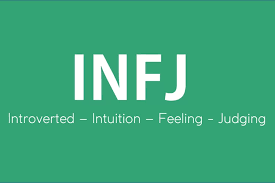
- Percentage of Population (Based on U.S. Statistics): 1.5% (1 to 3%)
- Strengths: Insightful; Creative; Serious; Quietly intense; Persevering; Inspiring; Loves languages and symbols
- Weaknesses: Perfectionistic; Extremely private; Can burn out easily; Always need a cause; Sensitive/Defensive
- Notable People Who Have These Traits: Martin Luther King Jr.; Nelson Mandela; Mother Teresa; Lady Gaga; and Marie Kondo
The vast majority of INFJs believe that assisting other people should be their primary focus in life, and as a result, they are always willing to provide a helpful hand.
They are aggressive and strong-willed, but they only utilize this tremendous energy to make the world a better place and not for their own personal gain, despite the fact that INFJs may appear gentle on the surface.
Even though they enjoy lending a helpful hand to others, INFJs have a propensity for being quite introverted and private.
Had You Any Idea?
Because INFJs are so intuitive, many people have the impression that they are “psychic” and frequently just know things without knowing why or how they know it.
Top 10 Rarest Myers Briggs Personality Types – Newshub360.net
Related Post
Credit: www.Newshub360.net

